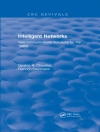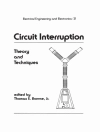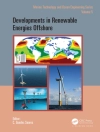Solar irradiation is the fundamental initiator of all sources of renewable energy. “Solar Energy Fundamentals and Modelling Techniques” presents methods for the quantitative determination of the amount of solar irradiation incident on a surface area of the Earth. The book collects together material from the current literature in atmospheric environmental sciences, climate change, meteorology, and renewable energy, liberally illustrated by diagrams and worked examples. The book provides a sound background to the underlying physical principles of solar irradiation and energy, with explanations as to how these can be modelled and applied in solar energy projects and design, as well as an innovative exposition of expert system methodologies used in this area. New modelling approaches are introduced, such as fuzzy logic inference, Artificial Neural Network (ANN) and genetic algorithm techniques, along with both classical Kriging and newly developed techniques for spatial solar irradiation modelling.
Table of Content
Energy and Climate Change.- Atmospheric Environment and Renewable Energy.- Solar Radiation Deterministic Models.- Linear Solar Energy Models.- Non-Linear Solar Energy Models.- Spatial Solar Energy Models.- Solar Radiation Devices and Collectors.
About the author
Prof. Dr. Zekai Sen is a researcher at the Istanbul Technical University, Turkey. His main interests are renewable energy (especially solar energy), hydrology, water resources, hydrogeology, hydrometeorology, hydraulics, philosophy of science, and science history. He has been appointed by the United Nations as a member of the Intergovernmental Panel on Climate Change (IPCC) for research on the effects of climate change.












